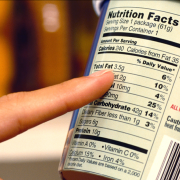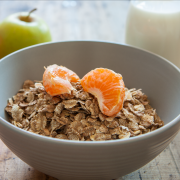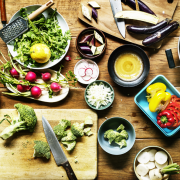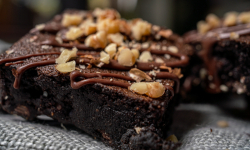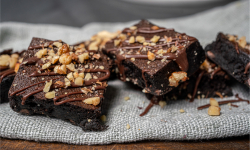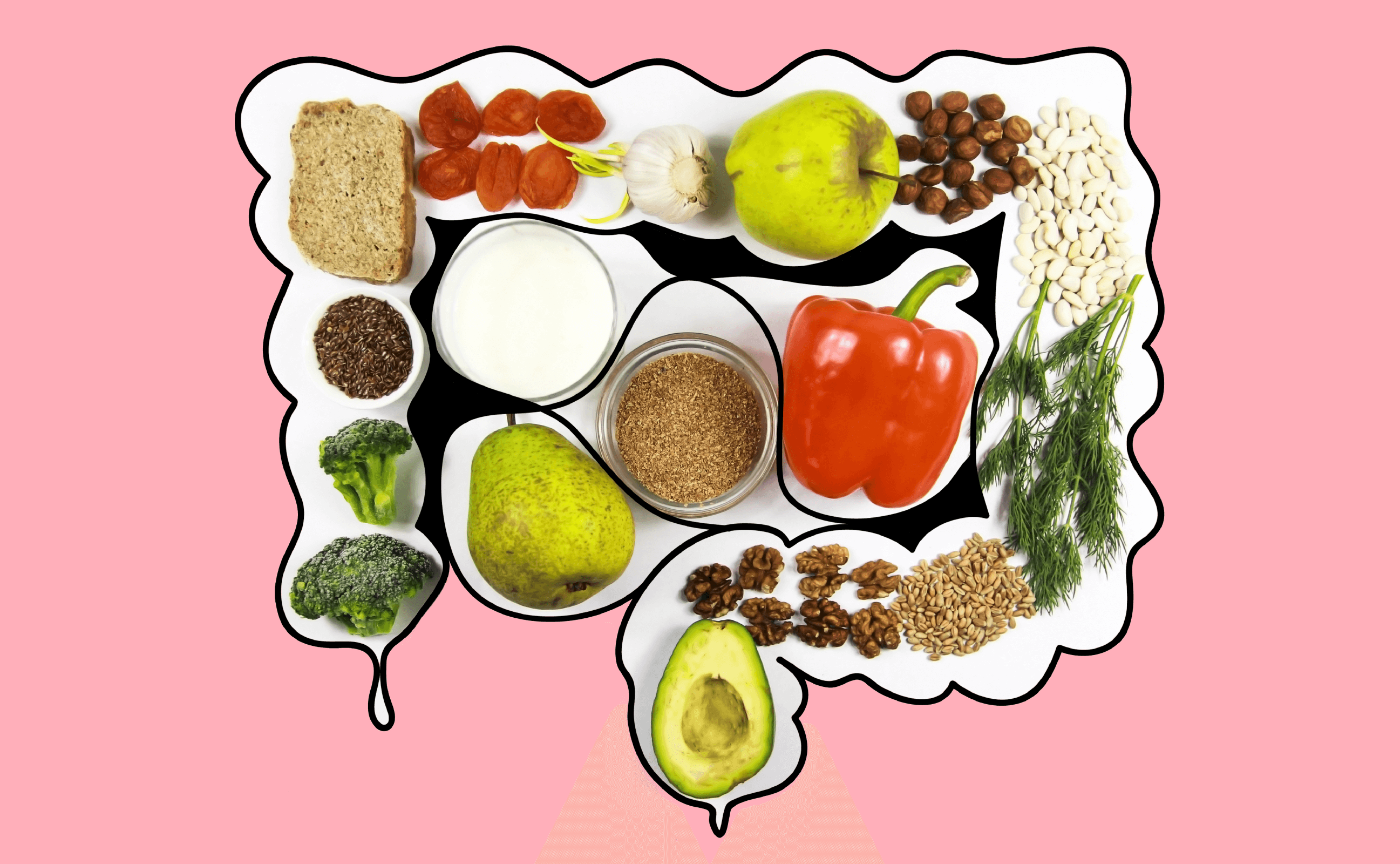 Starting before birth and continuing throughout life, we live in harmony with the 40 trillion bacteria and other organisms in our gut, collectively known as the gut microbiota. This huge collection of microbes is like a unique fingerprint with each person having their very own composition. A poor diet, stress, medication such as antibiotics and anaesthesia after an operation, and other factors like whether you were born naturally or via a C-section can cause a substantial number of the beneficial bacteria in your gut to die off.
Starting before birth and continuing throughout life, we live in harmony with the 40 trillion bacteria and other organisms in our gut, collectively known as the gut microbiota. This huge collection of microbes is like a unique fingerprint with each person having their very own composition. A poor diet, stress, medication such as antibiotics and anaesthesia after an operation, and other factors like whether you were born naturally or via a C-section can cause a substantial number of the beneficial bacteria in your gut to die off.The bacteria in the gut help digest food, regulate our immune system, protect against the harmful bacteria that cause disease, and even produce some vitamins. Keeping the gut healthy through good dietary choices is essential in managing an unhappy gut with symptoms like bloating, cramps, excessive wind, constipation, diarrhoea, and just feeling sluggish over all.
- Focus on Fibre
It’s well-known that our guts need fibres to keep it healthy. Soluble fibre, found in rolled oats, oat bran, oranges, bananas, apples, carrots, berries, and legumes such as beans, lentils and split peas, acts like a mop and helps absorb fluid in the gut, forming a soft, gelish mush that helps the stool to easily pass through the gut. The other type of fibre is insoluble fibre, also referred to as roughage, a type of fibre that does not dissolve in water. Insoluble fibre acts like a broom, roughly sweeping through the length of the gut to remove waste, and is found naturally in wholegrains (e.g. wholewheat pasta, bran, brown and wild rice, corn, oats), nuts and seeds. - Hello Hydration
While eating more fibre, remember to drink more fluids too. Specifically, in the gut, water is needed to transport nutrients and eliminate waste though urine and regular bowel movements. Still or sparking water can both add to your daily water quota, as can herbal or Rooibos tea (without milk and sugar) and hot water, with or without a squeeze of lemon juice. Add flavour to water with fresh fruit (e.g. diced apples, assorted berries, orange slices), freshly squeezed or bottled water, or herbs (e.g. mint, basil, rosemary). You could also make healthy homemade iced teas by steeping four caffeine-free teabags like Rooibos with every 1 L of hot water. Once cool, remove the tea bags and add one of the abovementioned flavours and serve as a drink or pour into ice lolly moulds for a refreshing summer dessert. And for the tech-savvy, download a free water reminder app on your smartphone to help you form healthy water drinking habits. - The Immune System
Sometimes the body’s natural repair process is overwhelmed. A poor diet plays a huge role: excess alcohol, smoking, too much refined and processed foods and trans fats, and too little fruit and vegetables. This all contributes to cellular and DNA damage which may play a central role in poor immunity, among other concerns like heart disease, type 2 diabetes, cancer, and even wrinkles, aging, and memory loss. It’s incredible to think that 65 % of our immune system is found in the gut. (Mayer et al, 2012) This means that a healthy gut will help keep our immunity in tip-top shape. Anti-oxidants are types of nutrients that may assist with boosting the immune system.
Thousands of substances can act as antioxidants such as quercetin (e.g. apples, cranberries, onions, lettuce, broccoli, tomato, olive oil), catechins (e.g. tea), flavones (e.g. celery, parsley), anthocyanidins (e.g. cherries, raspberries, strawberries, grapes), resveratrol (e.g. red grapes, red wine), lignans (e.g. barley, pomegranate, flaxseeds), tannins (e.g. legumes and leafy green vegetables), phytoestrogens (e.g. soy), and lutein and zeaxanthin (e.g. eggs).
The FitChef Difference
Here’s our top reasons why FitChef are a winner for gut-health:
- Start your day on a fibre high with FitChef’s breakfasts like Luxury Rolled Oats with Cranberries, Cashew, & Apple Cinnamon and Toasted Wheat Flakes.
- Refined starches are a no-go at FitChef and we use only high fibre and wholegrain starches like brown rice, wholewheat pasta, quinoa, oats, and bran. Go for meals like Spanish Chicken and Quinoa, Mediterranean Chicken with Roasted Vegetables & Brown Basmati Rice, Whole Wheat Penne Bolognese and Chicken Hotpot with Quinoa and Mixed Vegetables.
- The FitChef vegetarian meals use super high fibre legumes like beans, chickpeas and lentils. Try the Red Kidney Bean Goulash with Pumpkin & Spinach, Chickpea Potjie with Mixed Vegetables or Lentil Tomato Breedie & Sweet Potato Mash.
- Shop the FitChef panty for our medley of herbal and green teas to help hydrate the healthy way. Serve hot or chilled for a refreshing summer’s day drink.
- Vegetables are a guarantee in all FitChef meals. FitChef soups are packed with fresh vegetables, whether blended or chunky, and veggies like spinach, carrot, celery, butternut and beetroot are sneakily blended into FitChef smoothies, and beetroot in the Famous Beetroot Brownie.
- FitChef smoothies and immune-boosting shots are made from a variety of anti-oxidant rich fresh fruits like apple, banana, blueberries, strawberry, orange, and pineapple. FitChef smoothies are also fibre-filled as we blend all edible parts of the fruit and veg, like the skins, pips and seeds. The whole, fresh fruit is diced, chopped and blended with other natural ingredients to ensure our smoothies retain as much nutrition and fibre as possible- a double win for gut health.
- Try the Pine Nibbles 30g, Amazeballs Cranberry and FitChef Goji Berry Bar to perk up your anti-oxidant intake at snack time.
- Did you know that eating large volumes of food at a time will add extra pressure on the digestive system, affecting gut health? For this reason, FitChef’s meals in portion-controlled packages make for an easy way to manage gut health, as do the FitChef snacks.
References:
- Collado MC, Rautava S, Aakko J, Isolauri E, Salminen S. Human gut colonisation may be initiated in utero by distinct microbial communities in the placenta and amniotic fluid. Scientific Reports. 2016; 6:1-13.
- Klinder A et al. Impact of increasing fruit and vegetables and flavonoid intake on the human gut microbiota. Food and Function, 2016;4 (7):788-1796. Available from: https://pubs.rsc.org/en/content/articlelanding/2016/fo/c5fo01096a/unauth/.
- Oriach CS. Robertson RC, Stanton C, Cryan JF, Dinan TG. Food for thought: The role of nutrition in the microbiota-gut-brain axis. Clinical Nutrition Experimental. 2016;6:25-38.
- Sender R, Fuchs S, Milo R. Revised Estimates for the Number of Human and Bacteria Cells in the Body. PLoS Biol. 2016;14(8).
- Shahidi F, Ambigaipalan P. Phenolics and polyphenolics in foods, beverages and spices: Antioxidant activity and health effects – A review. Journal of Functional Foods. 215; 18:820–897.

 No added or artificial sugars
No added or artificial sugars The cleanest ingredient labels
The cleanest ingredient labels

